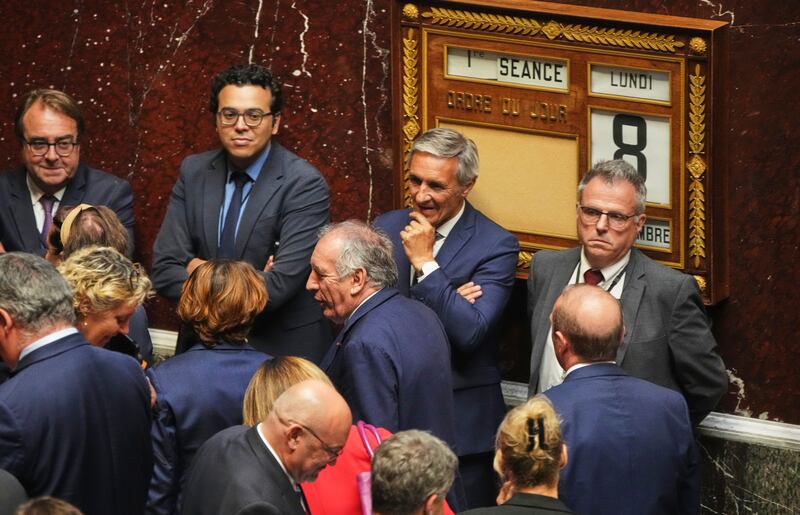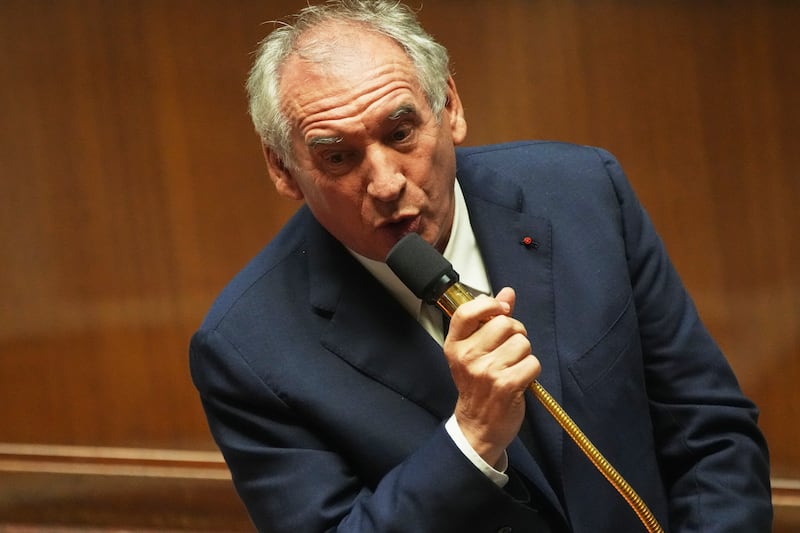- France's Prime Minister François Bayrou lost a vote of confidence, ousting him and his government.
- The vote came as Bayrou tried to push through an unpopular budget plan to decrease the deficit.
- Intense partisan divides in Parliament led to difficulties among the four prime ministers in the last two years.
On Monday, French Prime Minister François Bayrou lost a vote of confidence in the country’s national assembly, essentially ousting him and his government. The vote comes during a time of increasing geopolitical tensions and economic strain.
According to CNN, a total of 364 members of Parliament in the lower house of Parliament voted against Bayrou, while 194 voted for him. Bayrou called the vote in an attempt to push through an unpopular $51 billion savings plan meant to decrease the country’s deficit, which included scrapping two public holidays and freezing public spending.
Last year, France’s deficit was 5.8% of GDP and Bayrou’s plan was estimated to cut the deficit to 4.6% of GDP, per Axios.
The vote forces the prime minister to step down after just nine months in office. Bayrou took office after his predecessor, Michel Barnier, lost a no-confidence vote last December.
Bayrou was the fourth prime minister in the last two years, since President Emmanuel Macron started his second term.
After Bayrou resigns, Macron has two options: He can name a replacement and risk a repeat of what has already happened multiple times, or he can dissolve the parliament and call for an early election, per Axios.
How did we end up here?

In June 2024, Macron took a gamble by calling a snap parliamentary election after a loss for his party in the European Parliament vote. He hoped the election would achieve “a clear majority in serenity and harmony,” per BBC.
Instead, Macron got a hung, divided Parliament, making it difficult for any of the past four prime ministers to garner the needed support to pass bills and the yearly budget. Because of the growing dominance of political extremes in France, the country has become nearly ungovernable, per The New York Times.
Some parties, especially those on the far right and far left, have been trying to call for Macron’s resignation and get an early presidential election. But Macron has said he will not stand down until the end of his term in 2027, per BBC.
What comes next?
Instead of appointing a fifth prime minister in under two years, Macron could call parliamentary elections, but that would risk an even more divided and hostile National Assembly.
Before naming a new prime minister, Macron has to “find a name sufficiently unobjectionable to at least some of the parliamentary opposition that they won’t automatically bring him or her down,” according to BBC.
Soon after Bayrou was voted out, Macron issued a statement saying he would accept the prime minister’s resignation and name a new prime minister “in the next few days,” per The New York Times.


